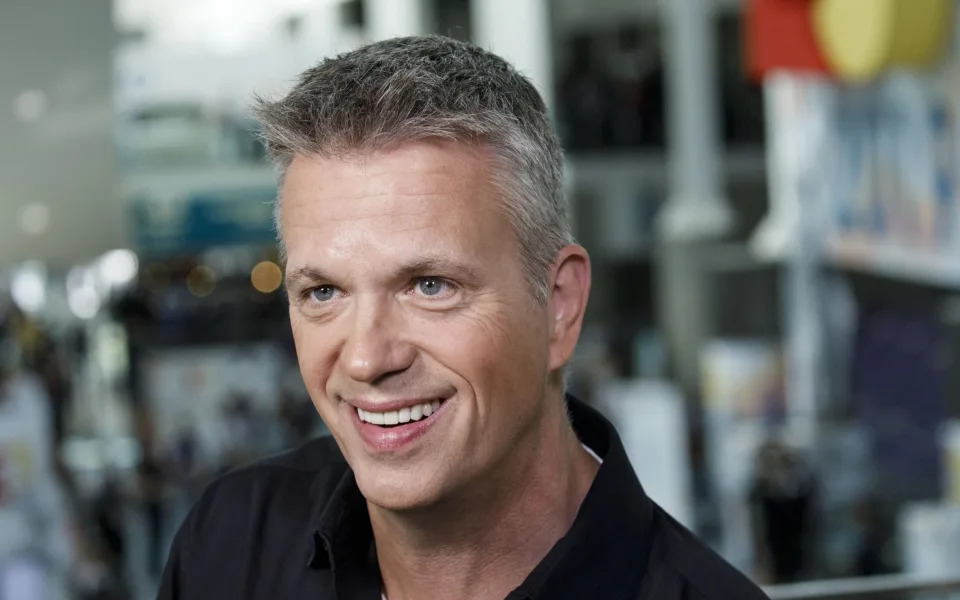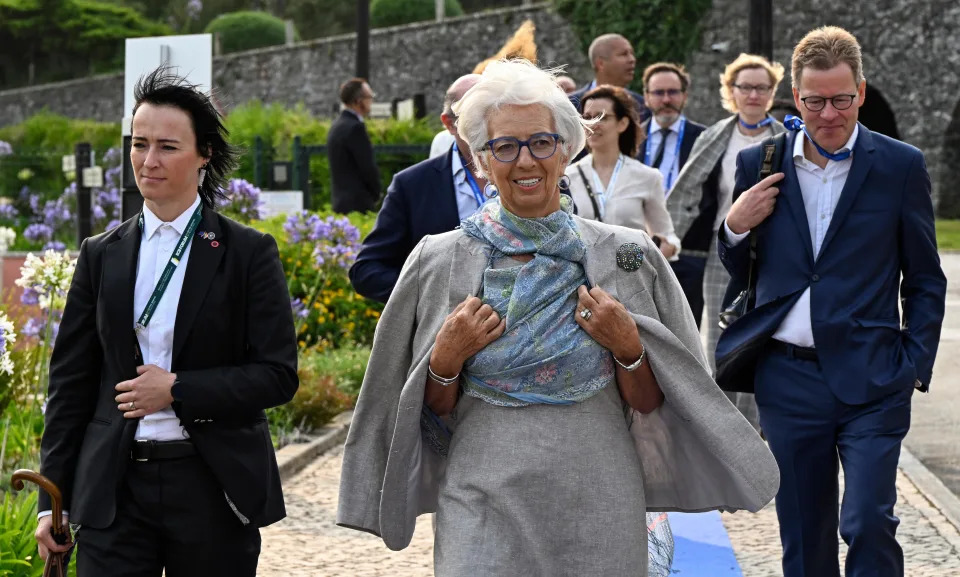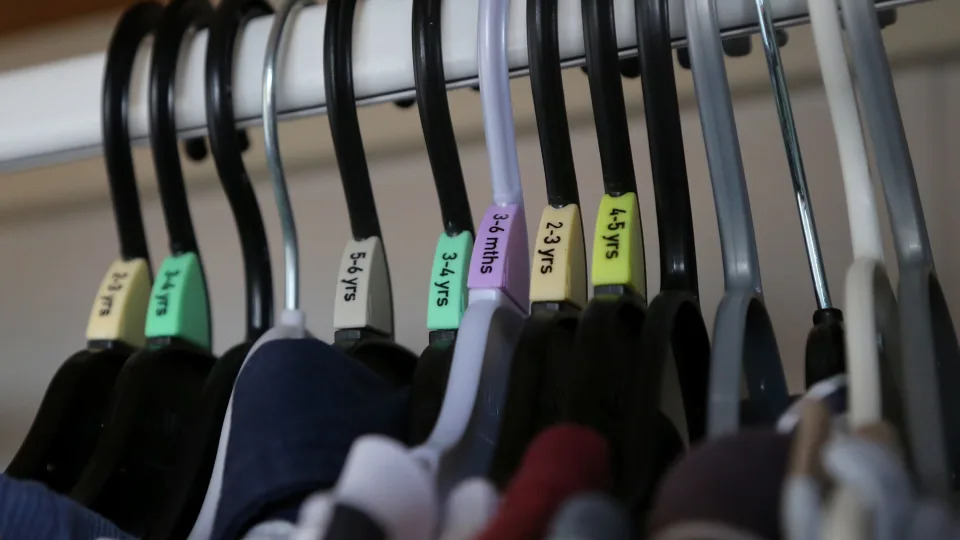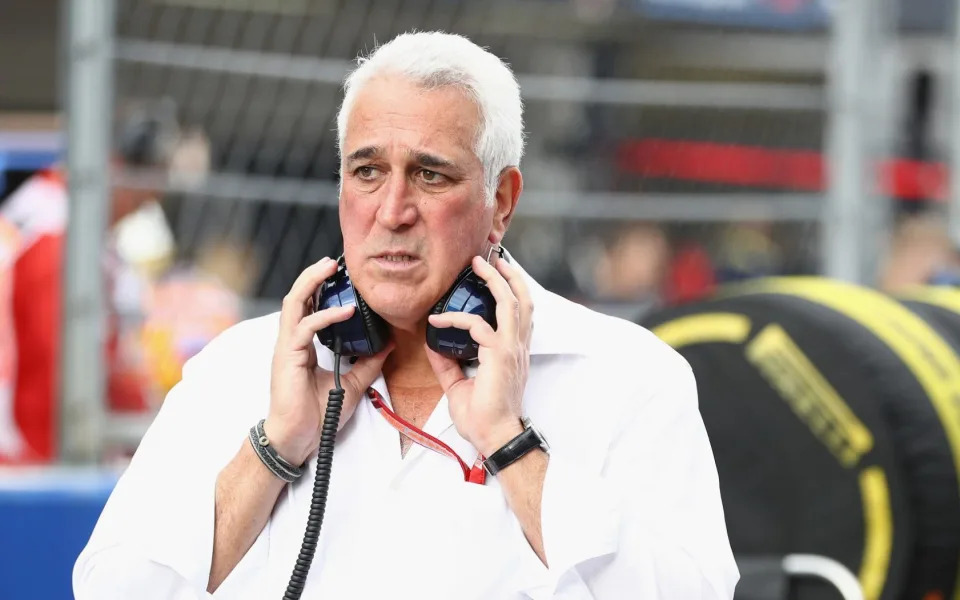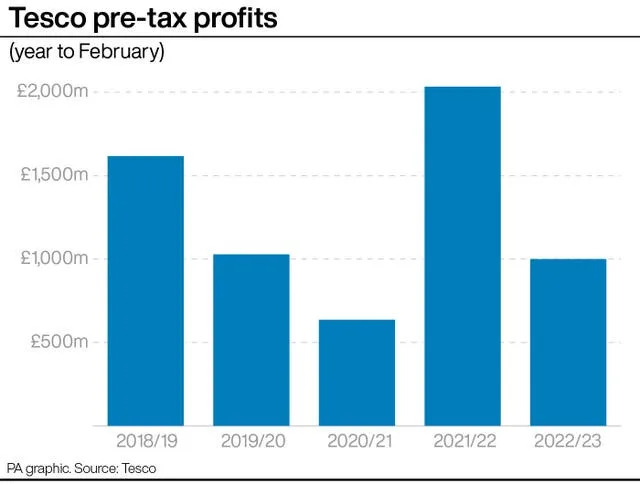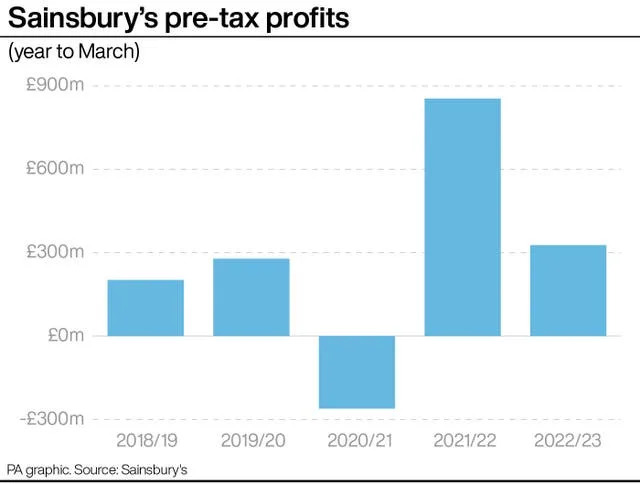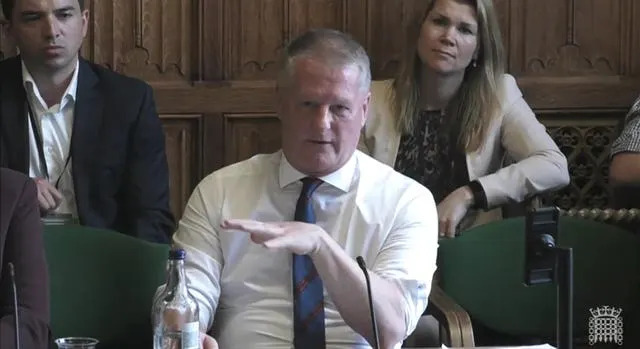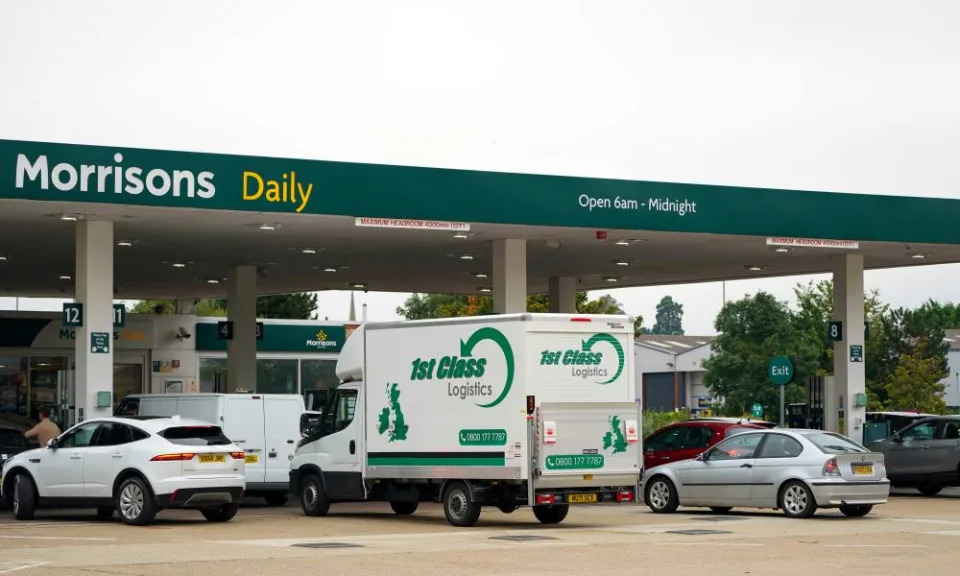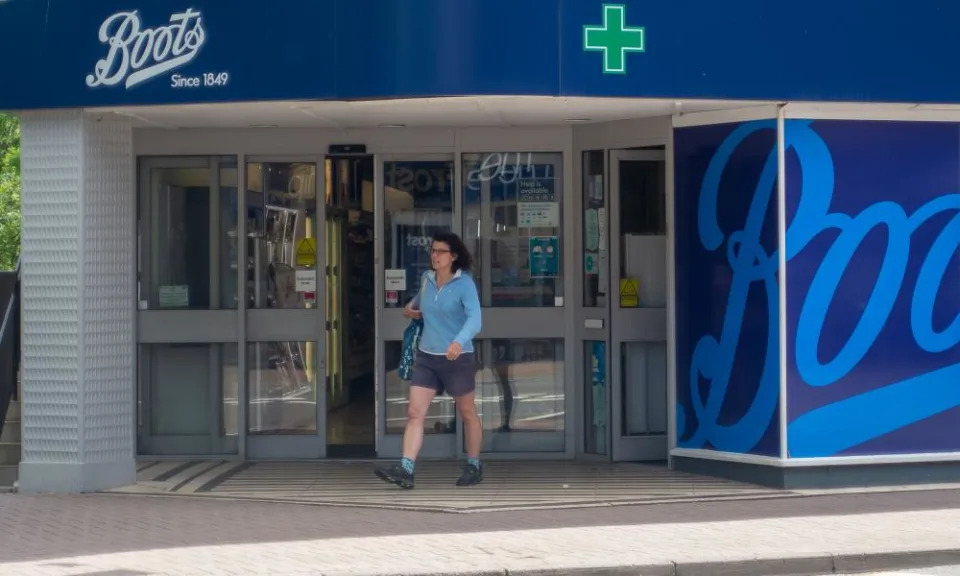UK
‘I’m being forced to make difficult choices’: outrage at telecoms price rise
Clea Skopeliti
Tue, 27 June 2023

Photograph: Gary Calton/The Observer
Stuart Ward, 68, was “astonished” when he learned EE would raise his broadband bill to £68.76 a month from April.
“The deal that Ofcom agreed with telecommunication companies to add 3.9% on top of inflation rises is a disgrace. And we, the consumers, have no real choice, as all [of the firms] appear to do it,” he says, adding that he was paying £60.11 a month before the price rise.Interactive
The increase has been hard to stomach amid the wider cost of living crisis. Ward has lived on a canal boat in North Yorkshire with his wife for the last year due to surging rents. “Rental prices went up a ridiculous amount,” he says, explaining that they struggled to find suitable accommodation after their landlord sold up. “It got to the point where to rent anywhere reasonable was almost double what we were paying and many are short term rentals with very little security.”
Ward was taken aback by the price increase for his broadband bill. “I was very surprised because I’d hoped there might be some consideration of the fact people are really struggling with household costs in general,” he says, adding he’d hoped for a much smaller rise.
“What other business has this guaranteed extra cash?”

Ward moved on to the canal boat last year after his landlord sold up. Photograph: Gary Calton/The Observer
As Ward lives on a boat, he is limited in the providers who can offer him reliable 4G broadband. “It means that on top of all the other price rises – like food, energy – I am being forced to make some difficult choices.
“I rely on 4G broadband for my phone, internet and TV. Without this I will be very isolated. In a world where everything is online, not having internet access would make my life very difficult indeed.”
“If the costs are allowed to keep rising at inflation plus 3.9%, then only the rich will have the privilege of being able to afford to be online. This will make for a tier of second class citizens who are cut off from much of the world.”
Why are UK telecoms firms imposing inflation-busting bills?
Richard Partington Economics correspondentTHE GUARDIAN
Tue, 27 June 2023

In the autumn of 2020, bosses at BT were faced with a problem. Britain’s economy was reeling as the second deadly wave of the Covid pandemic took hold, and millions of Britons were still shut out from their offices, working from home.
Demand had ballooned for BT’s sprawling broadband network and its EE mobile phone service, as the nation Zoomed in to meetings and switched to shopping online. Its contracts, like those of other telecoms companies, allowed it to increase prices each year by linking them to inflation. But in the lockdowns, with the wider economy in freefall, inflation had collapsed close to zero, limiting the firm’s ability to recoup costs.
BT’s bosses took action. In September 2020, the company added a supplementary charge of 3.9 percentage points on top of the usual inflation-linked rise. At the stroke of a pen, a measly increase of less than 1% became a chunky 4.5% rise.
Executives at Vodafone appear to have taken note. Two months after BT, they made the same call, announcing contracts would rise by inflation plus 3.9 percentage points.
One former Vodafone insider said the company considered how to respond to BT’s pricing change. “They didn’t want to be above BT, as this would bring undue attention. But they didn’t want to go lower as it would be a missed revenue opportunity.”
In March 2021, other big telecoms companies followed BT and Vodafone’s lead, moving to inflation plus a supplement. TalkTalk opted for a slightly lower 3.7 percentage points on broadband contracts, while Virgin Media O2 went for 3.9 percentage points. It also chose the higher retail prices index (RPI), as opposed to the more commonly used consumer prices index (CPI).Interactive
By now, the Covid vaccine had arrived, allowing factories and offices to reopen and trade to resume. The rate of inflation ticked up. From a low point of 0.2% in August 2020, it jumped to 2.1% by May 2021, and continued to climb. The original problem with the old inflation-linked rises no longer applied.
Nonetheless, in November 2022, iD Mobile (owned by the retailer Currys), and mobile operator Three introduced a 3.9 point supplement. By then, Russia’s decision to throttle gas supplies to Europe had sent energy prices skywards, and propelled the rate of inflation above 10%.
In early 2023, when it was clear the Bank of England was struggling to prevent inflation from becoming embedded in the economy, Tesco Mobile introduced the 3.9 supplement for out-of-contract customers. Virgin Media announced that its RPI-linked increases for broadband, landline and TV customers would also include a 3.9 percentage points from April 2024.Interactive
In total, the Guardian has found the rate was adopted, and is still being used, by six companies across 11 of their mobile and broadband brands.
The companies argue record levels of investment are required to upgrade their networks to the latest 5G technology, and to manage the flow of data as video meetings and streaming of TV, film and music become more popular. Virgin Media O2 alone invested £2bn in its network last year.
BT argues its price increases reflect the level of investment it needs to make across its networks and service. A spokesperson said the annual rise was contracted, transparent and clear. “We understand that price rises are never wanted nor welcomed, but recognise them as a necessary thing to do given the rising costs our business faces.”
Vodafone said its increase reflected “industry-specific costs beyond inflation – which include costly infrastructure projects and investments that help us anticipate and answer the ever-increasing demand for data”.Interactive
A spokesperson for Virgin Media O2, which uses the higher RPI measure, said “the suggestion that the industry has a uniform approach to pricing is demonstrably untrue”, and highlighted how “a quick Google” showed TalkTalk added 3.7 percentage points on to inflation, Shell 3 percentage points, and Sky used discretionary rises not linked to inflation. Some smaller operators, including Hyperoptic, Cuckoo and Zen, did not raise prices at all this year.
Virgin Media O2 said its price increase applies only to airtime contracts, and not handsets, adding: “We are facing higher costs ourselves at a time when demand for both mobile and broadband has never been higher.”
Sky used an average 8.1% increase across its broadband and TV service in April, below the RPI-linked increases applied by Virgin Media O2.
“We don’t think CPI or RPI should determine what people pay for broadband and mobile,” a spokesperson for Sky said. “Not only does it mean unfair prices for customers, but it also means they are locked into contracts without the ability to leave penalty-free.”
Several smaller providers – including budget brands owned by some of the larger firms – have kept their pricing competitive. Giffgaff, Smarty, Voxi and Sky Mobile did not increase prices by inflation this spring, and Lycamobile froze its prices for six months.
A spokesperson for Three said it understood consumers were under pressure, but that its rising running costs and investment plans meant it had to pass costs to customers. They added: “Our prices remain some of the most competitive in the market.”
The telecoms regulator, Ofcom does not regulate prices in the broadband and mobile retail markets, where it says the choice of providers offers enough competition. But it can intervene where a provider has significant market power. In February, it launched an investigation into transparency around mid-contract price rises after finding about one-third of customers did not know this could happen. But its current review will not consider limiting or banning them, and does not address why so many operators chose to add the same 3.9 percentage point supplement.
The regulator said: “Ofcom has repeatedly called on providers to think very carefully about whether significant price rises are justified during an exceptional period of hardship for many people. However, in recent months, we’ve seen more providers move to an inflation-based calculation, limiting customers’ choice of contracts that are not subject to these price rises.
“We’re taking a close look at these issues to consider whether tougher protections are needed.”
Lack of intervention allowed extraordinary increases this spring, the time of year when most telecoms companies put up prices. With CPI above 10% and RPI above 13% in January – the reference month used for annual bill increases – consumers faced an increase on their bills of up to 17.3%.
For the economy at large, the price hikes have added to the UK’s overall inflation rate for all goods and services – just as the Bank of England battles to crush inflation by raising interest rates. Annual inflation in telecoms jumped from 3.5% in March to 7.9% in April, and rose further to 9.1% in May – the highest rate since 1991.
Economists say that inflation-plus telecoms contracts risk adding to the persistence of inflation. Paul Donovan, the chief economist of UBS Global Wealth Management, said: “Any process where you have an indexation of prices which is rigidly built in is going to potentially prolong inflation at least for that sector.”
The Unite union, which represents many workers in telecoms, is particularly worried about the proposed merger between Vodafone and Three. If approved by regulators, it will reduce the number of providers that run their own network from four to three in the UK. “We need the competition regulator, the Competition and Markets Authority, to step in to prevent this damaging merger and stop this endless cycle of greedflation,” said Gail Cartmail, executive head of operations for Unite.
The CMA said it would review the impact of the merger. Vodafone and Three argue that by merging they would help to improve competition by acting as a larger challenger to BT and Virgin Media O2, the two largest companies in the mobile market. A spokesperson for Vodafone added: “We hope [the CMA] will find – as we strongly believe – that it will boost competition in the industry and benefit both customers and the country.”
Mobile and broadband firms accused of fuelling UK ‘greedflation’ with major price hikes
Richard Partington Economics correspondentTHE GUARDIAN
Tue, 27 June 2023

The UK’s largest mobile and broadband companies have been accused of fuelling “greedflation” after pushing through the biggest round of price hikes for more than 30 years.
It comes ahead of a meeting on Wednesday at which the chancellor, Jeremy Hunt, will order industry regulators to take tougher action to curb inflation.
Analysis published by the Guardian today reveals that six companies controlling most of the telecoms market all charged a 3.9 percentage point supplement on top of their annual inflation-linked increases this year.
The practice means millions of customers have faced mid-contract price increases of up to 17.3%, which economists said risked prolonging the cost of living crisis and adding to the pressure on the Bank of England to raise interest rates.
Labour accused the government of being “asleep at the wheel” on broadband pricing, while the telecoms regulator Ofcom responded by saying it was “taking a close look” at the issue “to consider whether tougher protections are needed”.
Morgan Wild, head of policy at Citizens Advice, said: “We called on firms to support their customers during this incredibly challenging time, but many chose not to listen and instead pushed on with price rises.”
This year’s charges have generated billions of pounds in extra revenue for providers, according to estimates by the price comparison website Uswitch, while hitting the average customer with an annual bill increase of £222 for broadband and £114 for mobile.Interactive
The biggest increases were for mobile phone customers of Virgin Media O2, which imposed a rise of up to 17.3% in April – 3.9 percentage points on top of the retail price index (RPI), which stood at 13.4% in January, the reference month it uses. The RPI is typically higher than the consumer price index measure of inflation, which most other telecoms operators use, and was at 10.1% in the same month.
The practice of adding a 3.9 percentage point supplement began during the pandemic, when inflation was near zero. BT was the first mover in September 2020. Despite a surge in inflation over the following months, more and more providers have adopted price increases of inflation plus 3.9 percentage points, including Vodafone, Three, and Virgin Media O2. Smaller suppliers Tesco Mobile and iD Mobile have also done so. As of this spring, the model is being used by at least six companies across 11 separate mobile and broadband brands.
Andrew Sentance, a former member of the Bank’s rate-setting monetary policy committee, said regulators appeared to have been “caught napping” by the practice and called for tougher action to stop firms ripping off consumers.
“Where has this 3.9% come from? It seems to be uniform across the industry – which is the sort of thing a regulator should be concerned about. They have been caught napping by the shift up in inflation.”Interactive
Jeremy Hunt is to hold meetings with regulators on Wednesday to ask them what they are doing about any companies exploiting rampant inflation by raising prices, including the Competition and Markets Authority and Ofcom, the telecoms watchdog.
Mid-contract price rises usually take effect in March or April each year and apply to all customers on contracts with relevant terms, regardless of when they signed up to the deal, affecting millions of consumers across Britain. Contracts tend to last between one and two years, and customers typically must pay a penalty if they leave before the contract expires. But many are being asked to sign up without the guarantee of a fixed price.
Ofcom does not regulate prices in the broadband and mobile retail markets, where it says the choice of providers offers enough competition, but it can intervene where a provider has significant market power. It launched a review of mid-contract rises in February after finding that one-third of customers did not know whether their provider could hike prices.
Labour said it would ban mid-contract price rises. Lucy Powell, the shadow culture secretary, said: “It’s increasingly clear that government has been asleep at the wheel when it comes to broadband price increases.
“The eye-watering rises we have seen are a direct result of their wrong approach to competition in the broadband market which is harming consumers, hitting families struggling with the cost of living crisis, and contributing to the worsening economic outlook.”
Official figures show price rises by mobile phone and broadband providers drove inflation in telecommunications services in May to the highest level since 1991, with an annual rise of 9.1%.
The regulator said: “Ofcom has repeatedly called on providers to think very carefully about whether significant price rises are justified during an exceptional period of hardship for many people. However, in recent months, we’ve seen more providers move to an inflation-based calculation, limiting customers’ choice of contracts that are not subject to these price rises.
“We’re taking a close look at these issues to consider whether tougher protections are needed.”Interactive
Chris Pike, head of digital markets at Fideres, a global economics consultancy which investigates corporate and financial matters, said: “This is not the sort of stuff that should be happening in a competitive market.
“Whether this is explicitly agreed, or whether this is tacit – in the sense they all see what they’re doing and follow it – each of those can be a competition problem.”
Telecoms firms argue price increases are vital for funding investment in their networks amid surging demand for broadband and mobile services, as more people shop and work remotely, and stream data-intensive TV, film and music.
They also highlight that consumers can shop around for a cheaper deal or haggle for better terms. The industry also provides cheaper social tariffs for people on benefits. However, just 5% of eligible households are signed up.
Gail Cartmail, executive head of operations for Unite, said the price hikes were leading to an “endless cycle of greedflation”.
“Failures by regulators are fuelling the attack on living standards,” she said.
Spokespersons for BT, Three, Virgin Media O2 and Vodafone said that while they understood consumers were under pressure, they faced their own increases in costs and needed to put up prices to continue investing in improving services.
